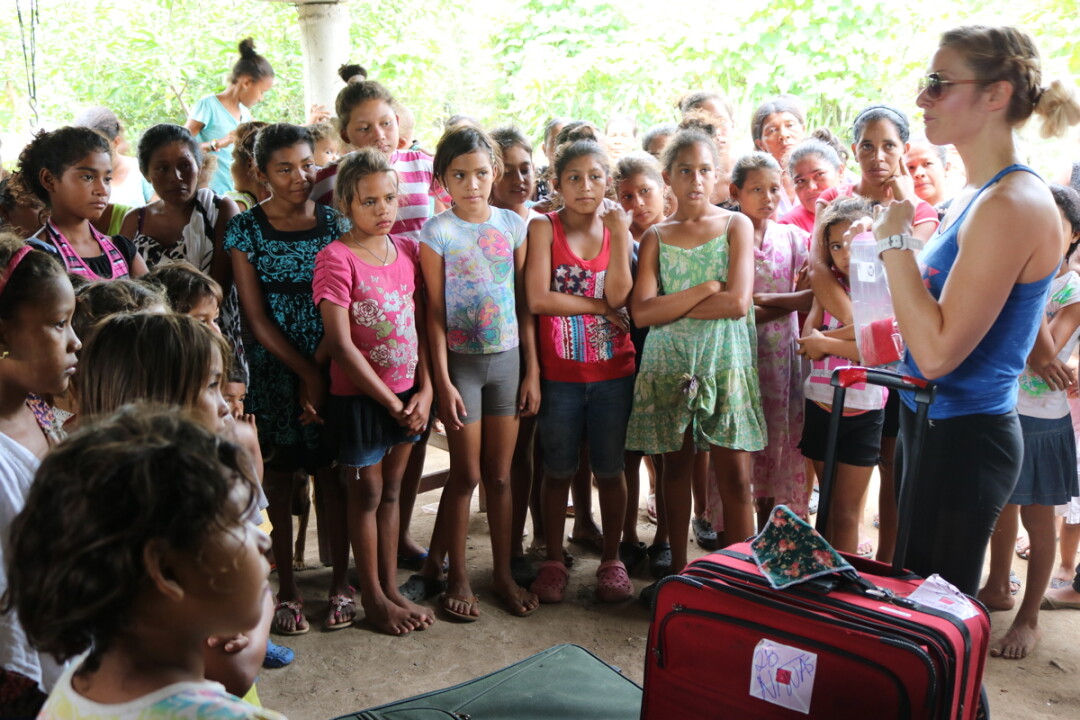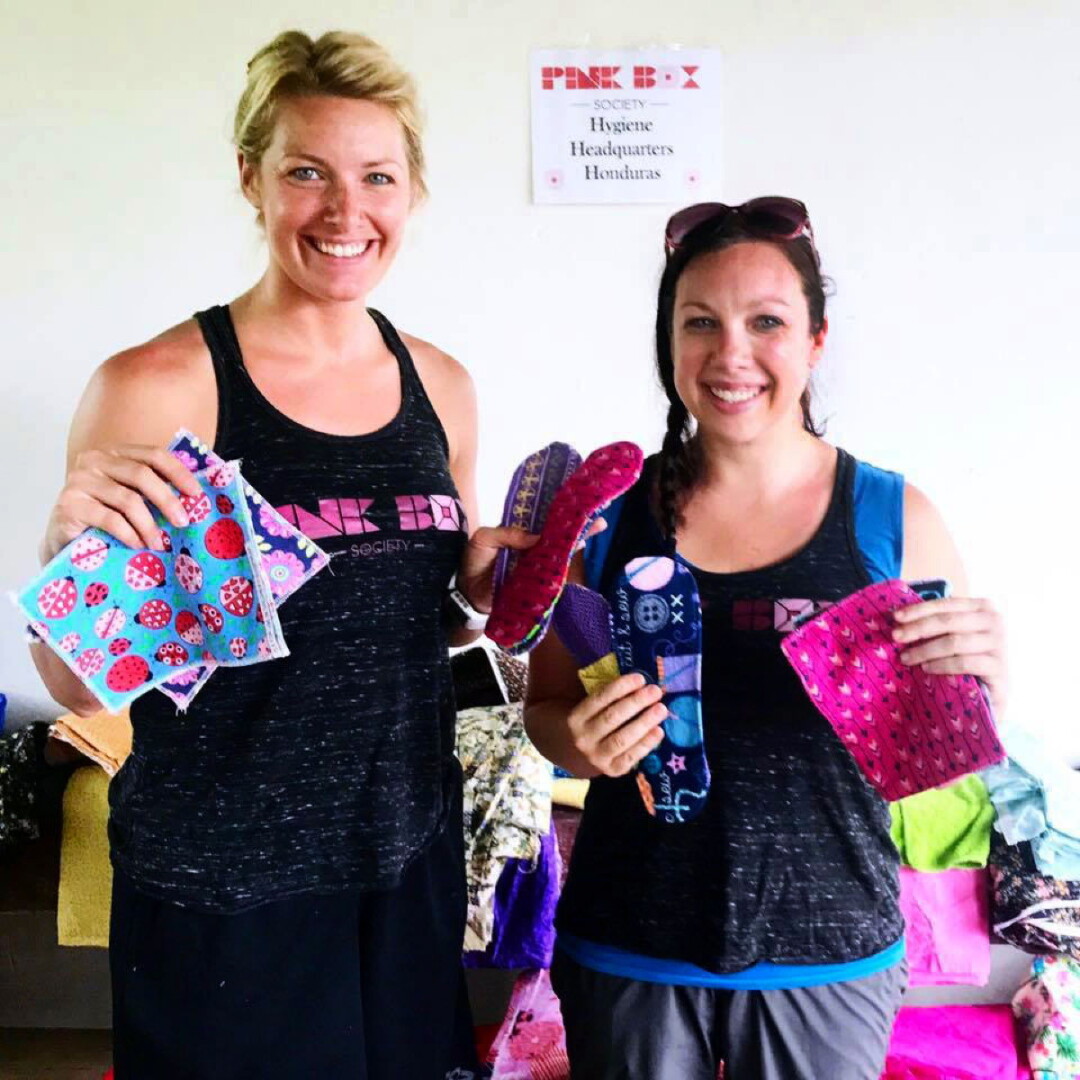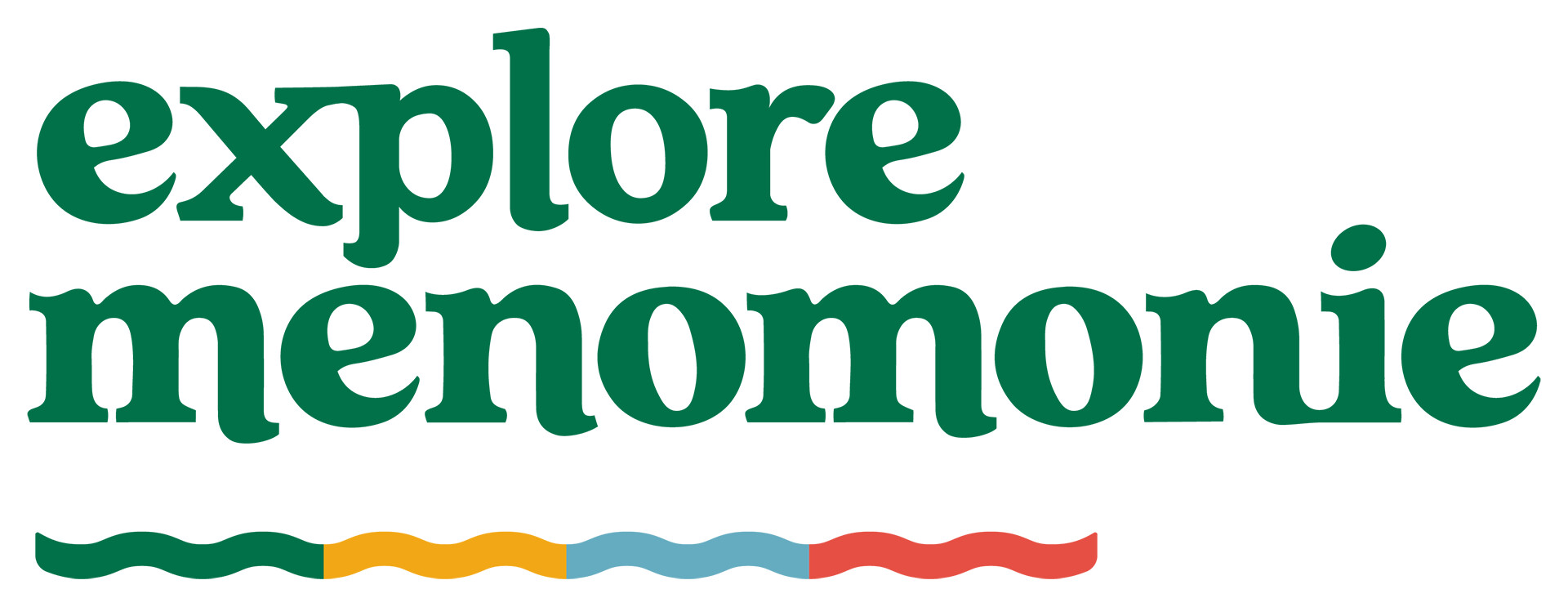Menomonie Sisters Make Impact in Honduras With Feminine Hygiene Kits

One in every five people in Honduras earns less than $1.90 a day. One million people in the country’s rural communities don’t have reliable access to clean drinking water. Women and girls with little education struggle to manage their menstrual cycles, using what they can find to handle the bleeding. Many forego the educational opportunities they have access to, marrying young and having children early.
Heather Wittig and Jenni Patnode, sisters and Menomonie residents, started nonprofit Pink Box Purpose to address the hardships women in Central America face on a daily basis. Through menstrual hygiene education and distribution of reusable cloth pads, underwear, soap, and washcloths, Pink Box Purpose brings women together across cultures to uplift one another.
Wittig was on a mission trip in Honduras with Living Water National in February 2017. She was handing out feminine hygiene kits when she met Alba Carcamo, a local teacher, who wanted to make the tools in the kit accessible to her community. “How can we do this here?” she asked.
Two months later, Wittig and Patnode returned to Olanchito with three other women and 10 suitcases packed with sewing machines, a serger, fabric, thread – everything they would need to establish their “Hygiene Headquarters” in a room at the community center. They hired five local women and taught them to sew so they could cut and assemble pads to give to people ages 10-45.
“We wanted to create an environment where the women could meet and talk with each other and talk about life while they were helping other women and girls,” Patnode said. The Honduran women work the hours that work for them, often bringing their daughters to teach them how to sew. “It gives them a job skill and they continuously say they love to come sew and get together (much like women in quilting clubs here like to get together to sew),” she said.

Pink Box organizes regular mission trips to Honduras for women from the Chippewa Valley to help sew and distribute the hygiene kits. They fly to Honduras and travel with a local man to discourage trouble, then spend the day in small communities teaching girls and women about menstruation, cleanliness, pregnancy, self-worth, and God. Volunteers and locals bond over shared experiences, from the biological to the cultural. Often, abuse survivors share their stories and lend each other strength to resist or escape their abusers, making better lives for themselves and their children.
“Even though we’re two different cultures, we’re still women,” Patnode said.
Locals can support the Pink Box Purpose by hosting pad-cutting parties. Interested hosts can purchase the pad pattern on the Pink Box website – it comes with instructions and a video with party suggestions – and gather people together to cut materials. Then, they send the cut fabric back to Pink Box, which is in turn sent to Honduras. The proceeds from the party kit and the cut pads all go to supporting women in Honduras. So far, Patnode and Wittig, along with dozens of other women, have distributed more than 750 hygiene kits.
Wittig and Patnode are working nationally and locally to improve the lives of women. They are planning to open a second Hygiene Headquarters in El Salvador, where they can employ and help more women. They also assemble and donate toiletries to Bridge to Hope, a nonprofit in Menomonie that offers services and shelter to victims of domestic abuse and human trafficking. They are reaching out to other local organizations such as rotary clubs and Polka Dot Powerhouse to promote pad-cutting parties as a way to unify women locally and support them globally.
For more information about Pink Box Purpose, visit pinkboxpurpose.org.


